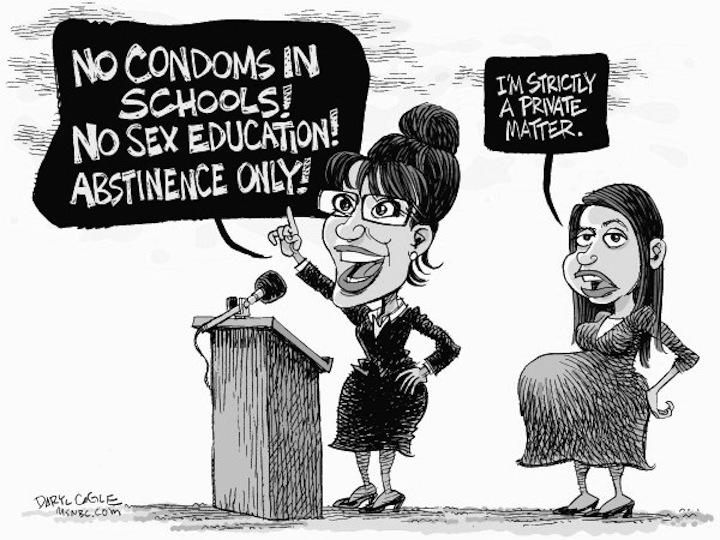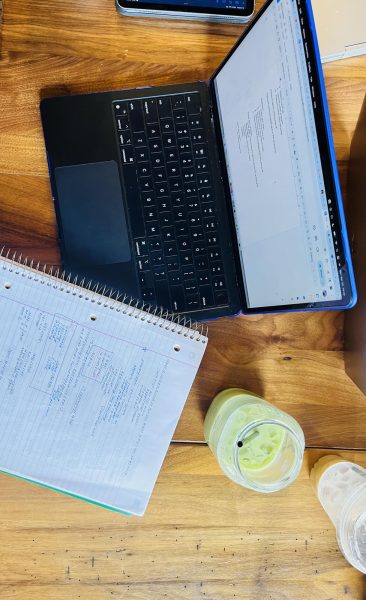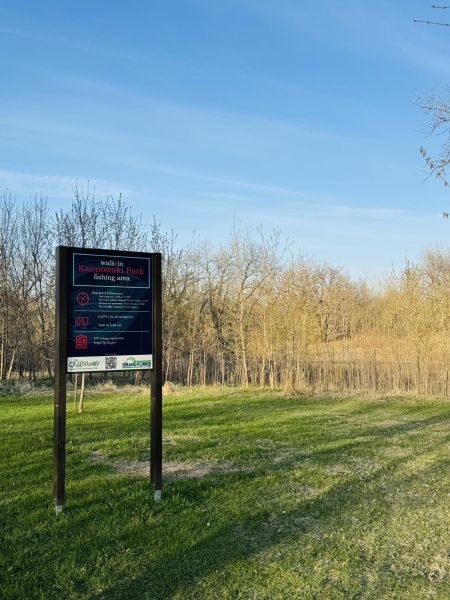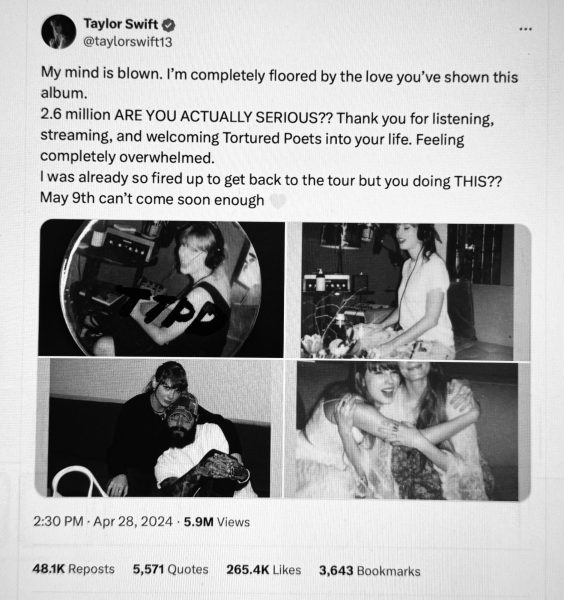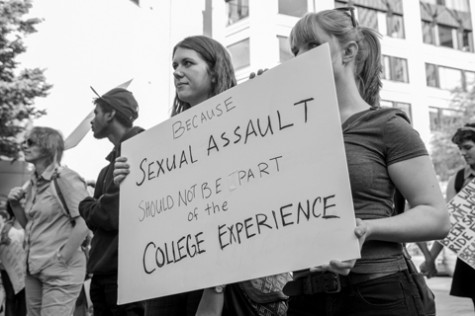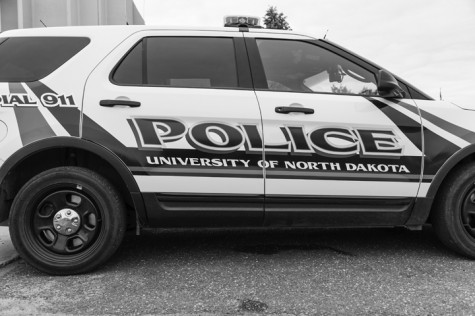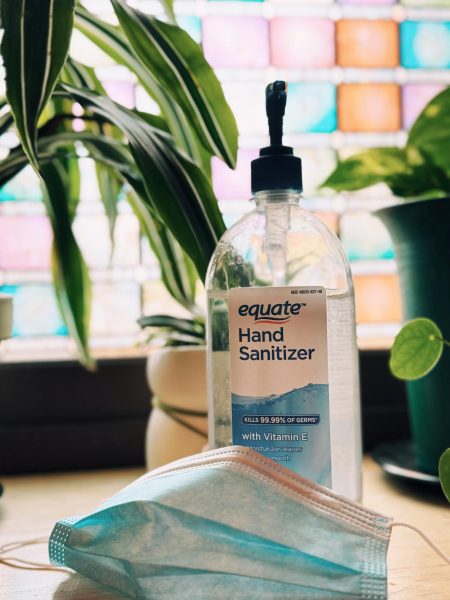Sex-Ed programs inadequate for student needs
Illustration courtesy of Daryl Cagle/MSNBC.
Sex has been and will always be a hot topic in society. After all, “sex sells.” As a controversial topic, its role in society changes with how its portrayed through TV, movies, books, art and ads.
These are often the sources for initial exposure for younger generations. Most like to believe that their introduction to sex is in middle school and high school health classes, but that is simply not the case.
Are these classes effective in teaching and educating our youths to practice sex safely? Are they helping to reduce the rates of STD’s and teen pregnancies? It depends on what they’re being taught.
Health was and still is a class that isn’t anticipated by young teens. It’s pretty awkward. Listening to parent-like figures talk about the functions of your body parts that are still developing isn’t exactly what anyone calls a good time.
One of the downfalls with sexual education in schools is it’s only teaching biological functions and abstinence, if there even is a program at all. This isn’t wrong of schools, just limiting.
Abstinence isn’t a worthless or bad thing to teach because it can help reduce teenage pregnancies and the spread of STD’s.
Informing students that sexual acts are not to be taken lightly and could have negative consequences that alter their lives is very important.
What’s lacking is the acknowledgement that teenagers will have sex regardless of what they’re told in a health class. They aren’t being educated about sex as an act — only what their body parts do and why and not to engage in sex.
Teens go into these acts knowing very little — going off of hearsay, sex columns or porn. They know of contraceptives but might not have access to them or are not knowledgeable of their use.
Secondary schools need to treat sex much like college campuses do; Accept that it’s occurring, not shaming those who do engage, and educating and informing properly about sex.
The availability of condoms and dental dams here on campus (free at Student Health) is the best I’ve seen in an educational establishment, and this provided information and supply of contraceptives should be just as available to teenagers.
They should be teaching that sex isn’t ‘bad’ or ‘dirty’, rather a natural part of life. Teens shouldn’t feel like it should be hush-hush around adults. They should go into the nurses office and feel OK asking about birth controls — how to use them, how they work — without feeling like they’re going to be shamed or get into trouble by doing so.
Religious parents are often against this, believing only in abstinence. My thought on that is, it’s a public school, you can teach what you feel is right to your kid, and you have that right. But limiting every youth from possibly preventing pregnancy or spreading STI’s is selfish and quite frankly, negligent to those teens.
People don’t like talking about sex, yet it’s constantly around us. Educating our younger generations not only on biological functions and abstinence, but how sex works and what are proper feelings, about going slow and not being afraid to ask questions as well is imperative.
Having readily available answers and safe sex materials (pamphlets, condoms, dams, etc.) is only going to help reduce negative consequences to teens.
After all, knowledge is power.
Stephanie Gartner is a staff writer for The Dakota Student. She can be reached at [email protected].


